Aging brings on plenty of changes to your body, one of which may be an increase in belly fat. This is also referred to as “android obesity,” says Amy Goodson, MS, RD, CSSD, LD, a board-certified specialist in sports dietetics, the author of The Sports Nutrition Playbook, and a member of our Medical Expert Board. Excess abdominal fat is so dangerous because that’s where your organs are located. Belly fat can typically increase insulin resistance, putting you at a greater risk of suffering from diabetes. In order to stay in good health and great shape, following just the right exercise routine and diet is crucial. Goodson shares some of the fastest ways to a flat belly after 50 so you can deflate the flab.
Keep reading to learn more, and gear up to reclaim your midsection. And next, be sure to check out 6 Tips for Women To Lose Belly Fat & Keep It Off.
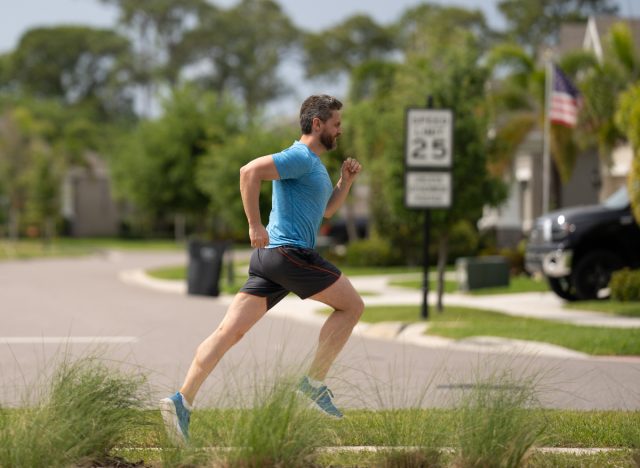
Interval cardio, also known as high-intensity interval training (HIIT), can help speed up the calorie burn without spending a ton of time at the gym. A HIIT workout is typically set up with quick bursts of intense physical activity, like jumping, cycling, or sprinting, with little breaks to rest in between. “The best part is that it can be completed in as little as 20 minutes, which makes it easier to fit into even the busiest of schedules,” Goodson says.
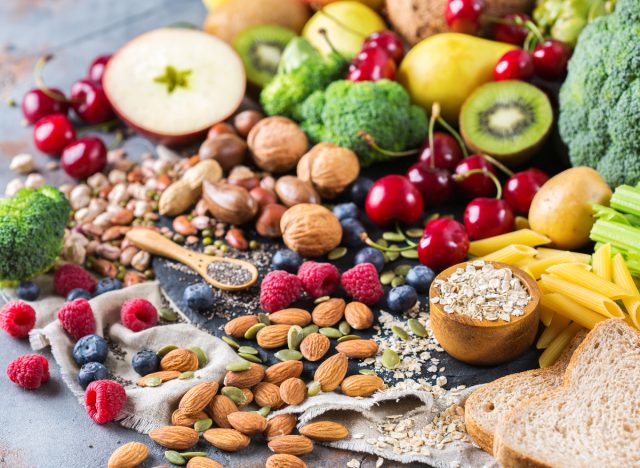
Real talk: Fiber is a key part of any healthy diet. Plus, it can support your flat belly goals by making you feel fuller for longer. Research even shows that the more soluble fiber you eat, the greater reduction in visceral fat you’ll see.
“Sources of soluble fiber include whole grains such as oats or barley, legumes, and fruits where you can eat the skin. No extra time is required—simply swap your grain for a whole grain, and include fruit [in your] snacks,” Goodson says.
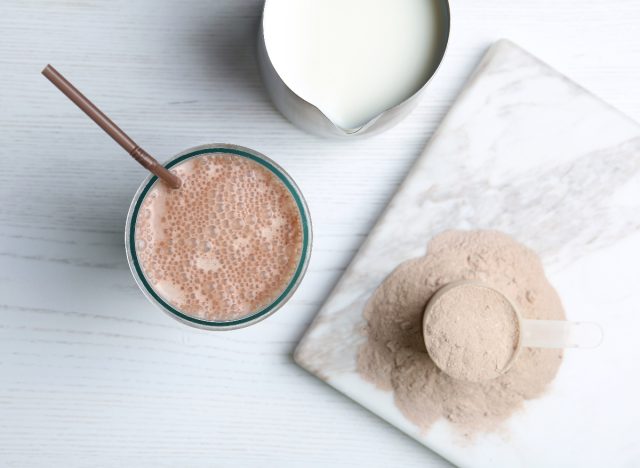
Just like fiber, protein keeps you full long after the meal is done and helps decrease your appetite. “Protein has also been shown to elevate metabolism because it takes more effort for the body to digest. Plus, protein is important for maintaining muscle mass during periods of weight loss,” Goodson adds.
You can easily add protein to snacks and meals throughout your day. Examples include fish, meat, poultry, dairy, eggs, and beans. Whipping up a tasty protein shake with whey protein is a seamless way to amp up your intake if you find it difficult to add protein to other meals.
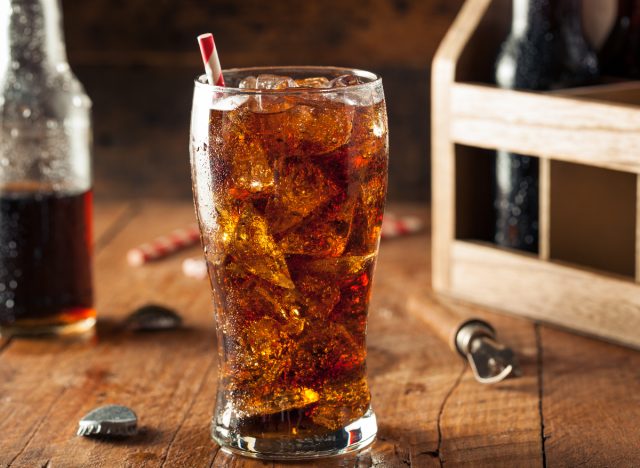
Goodson encourages you to “swap your sip” if you want to get a flat belly after 50. Beverages like sweet tea, sodas, fruit juice, energy drinks, and alcoholic drinks with mixers are jam-packed with unnecessary calories and added sugars. Plus, these sips offer little nutrients (if they have any at all).
“Try swapping fruit juices for whole fruits to reap the benefits of added fiber and swap sodas for low-calorie flavored carbonated waters,” Goodson suggests.
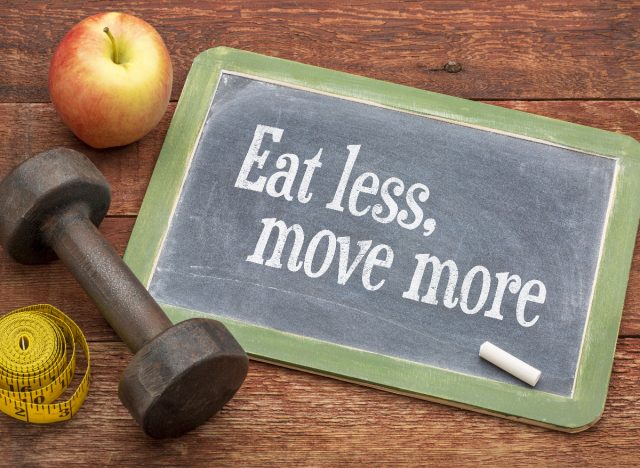
Creating a calorie deficit is a critical part of losing weight and burning belly fat. This essentially means taking in fewer calories than you torch. “Sometimes, people may underestimate how many calories they consume in a day, especially with snacks and beverages,” Goodson explains. “It can be beneficial to track your intake for a short period of time, such as one to two weeks, to monitor your calorie intake, increase your awareness, and identify any sources of excess calories to cut back on.”

Getting enough solid rest can aid in your weight loss efforts and help you achieve the flat belly you desire. How so? As Goodson puts it, “Chronic lack of sleep can be detrimental [to your] overall health. Research suggests that sleep deprivation may even make you feel hungrier by impacting hormones that increase your appetite and contribute to weight gain. Studies have shown that improving your sleep health may be associated with improved weight and fat loss.”
According to the Sleep Foundation, adults 18 and up should aim for seven or more hours of solid sleep each night. Habits that can help boost your sleep hygiene include going to sleep at the same time every night, turning your blue light devices off, avoiding caffeinated beverages before you hit the sheets, and finding just the right supportive mattress.

Don’t underestimate the power of drinking enough H2O. “Being dehydrated can contribute to constipation, which may lead to bloating and make the stomach appear larger than it is,” Goodson tells us. “Drinking water can help minimize bloating and water retention. Water also might also help with weight loss by helping you feel fuller at meals and eat [fewer] calories.”
Alexa Mellardo

